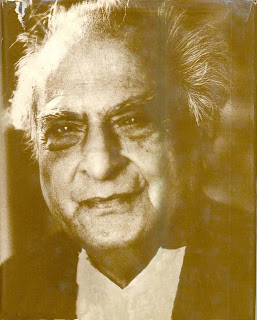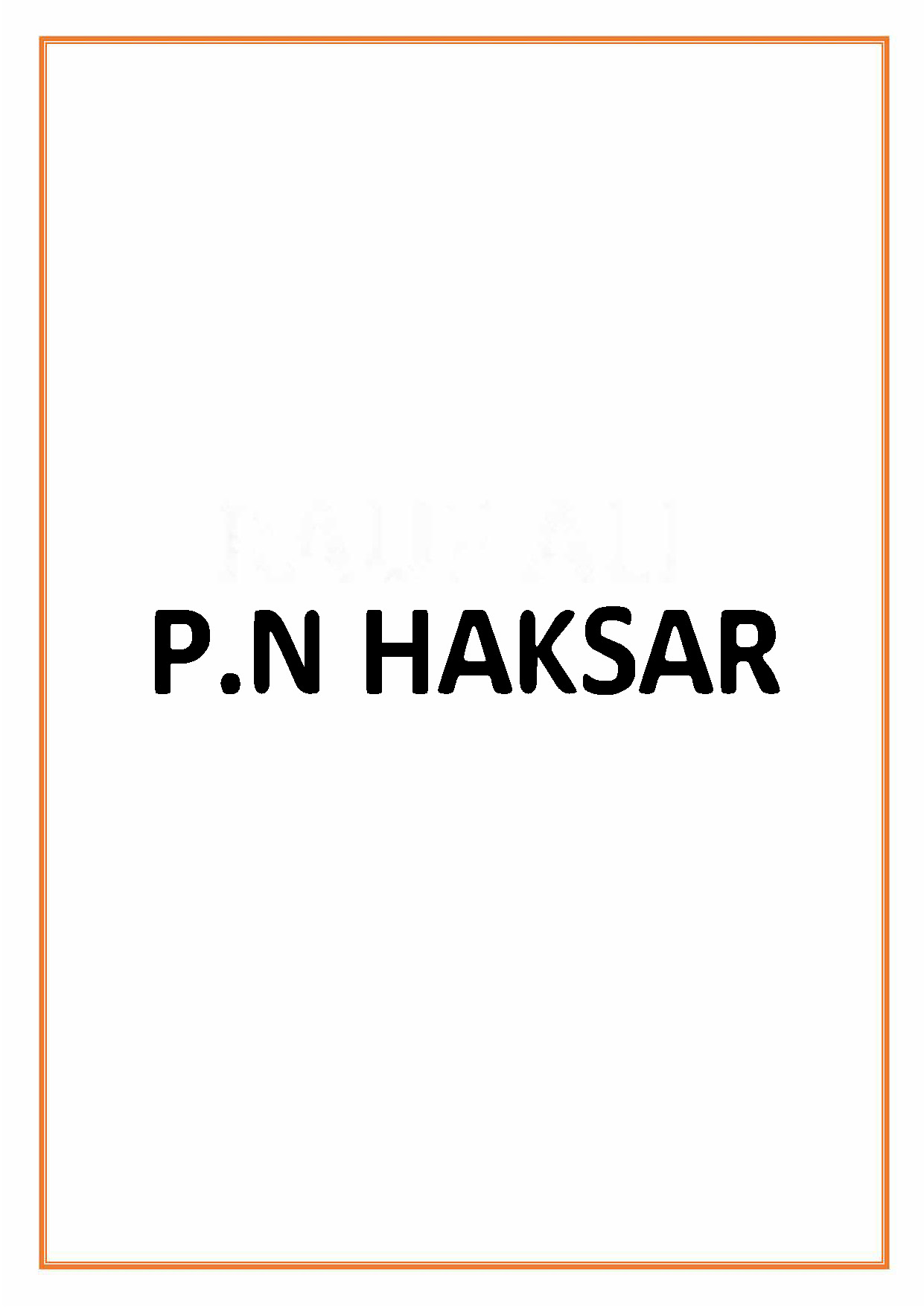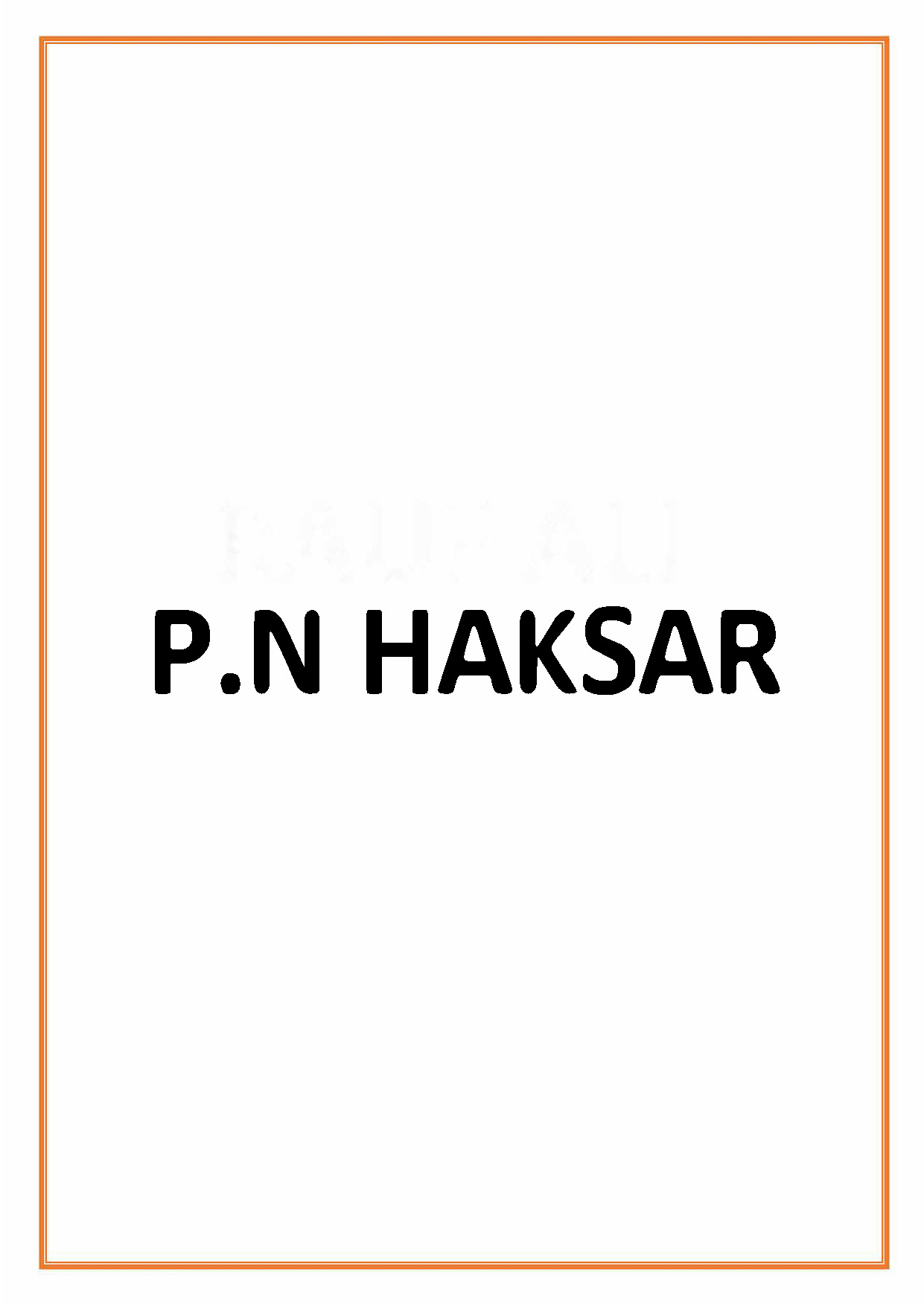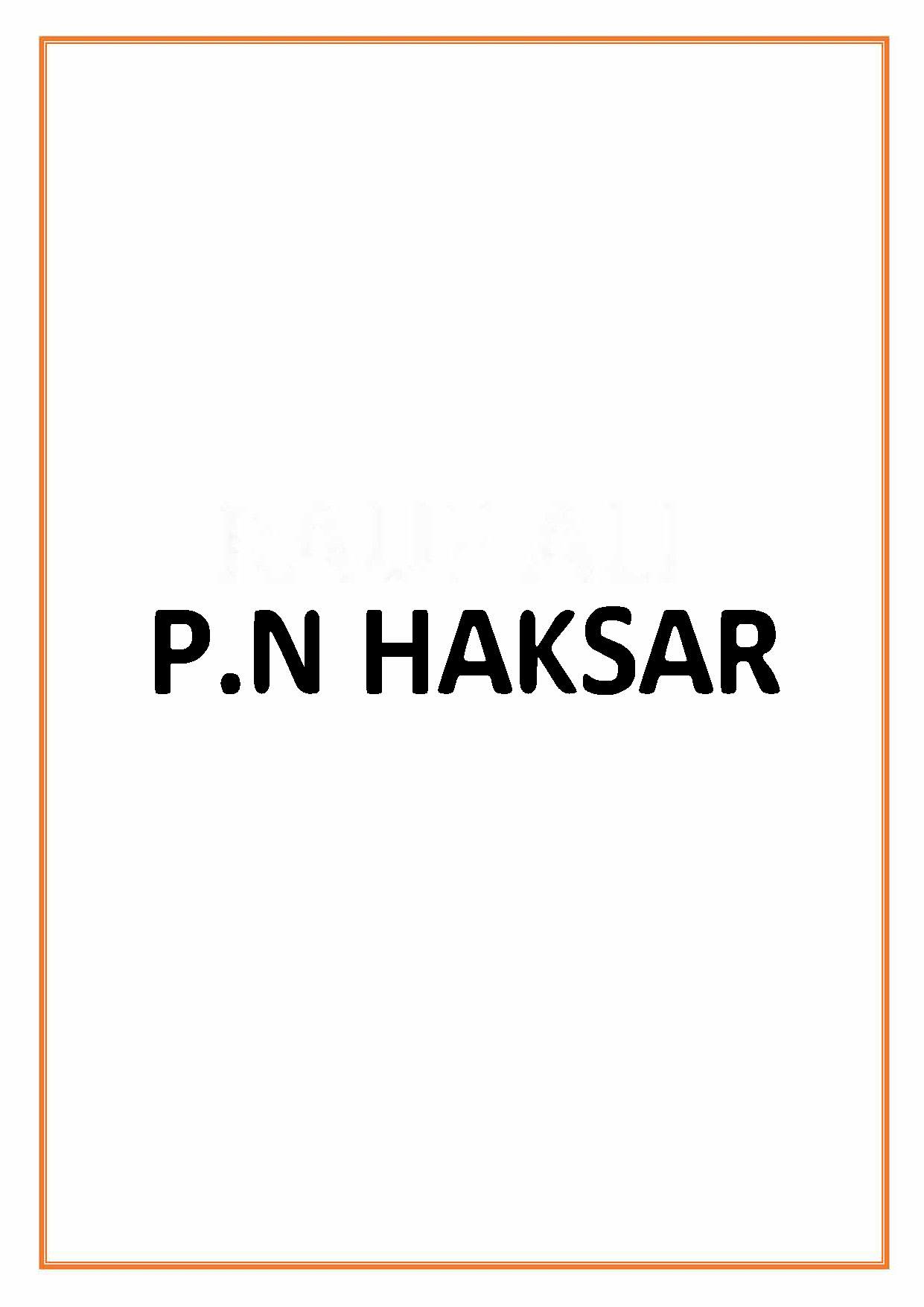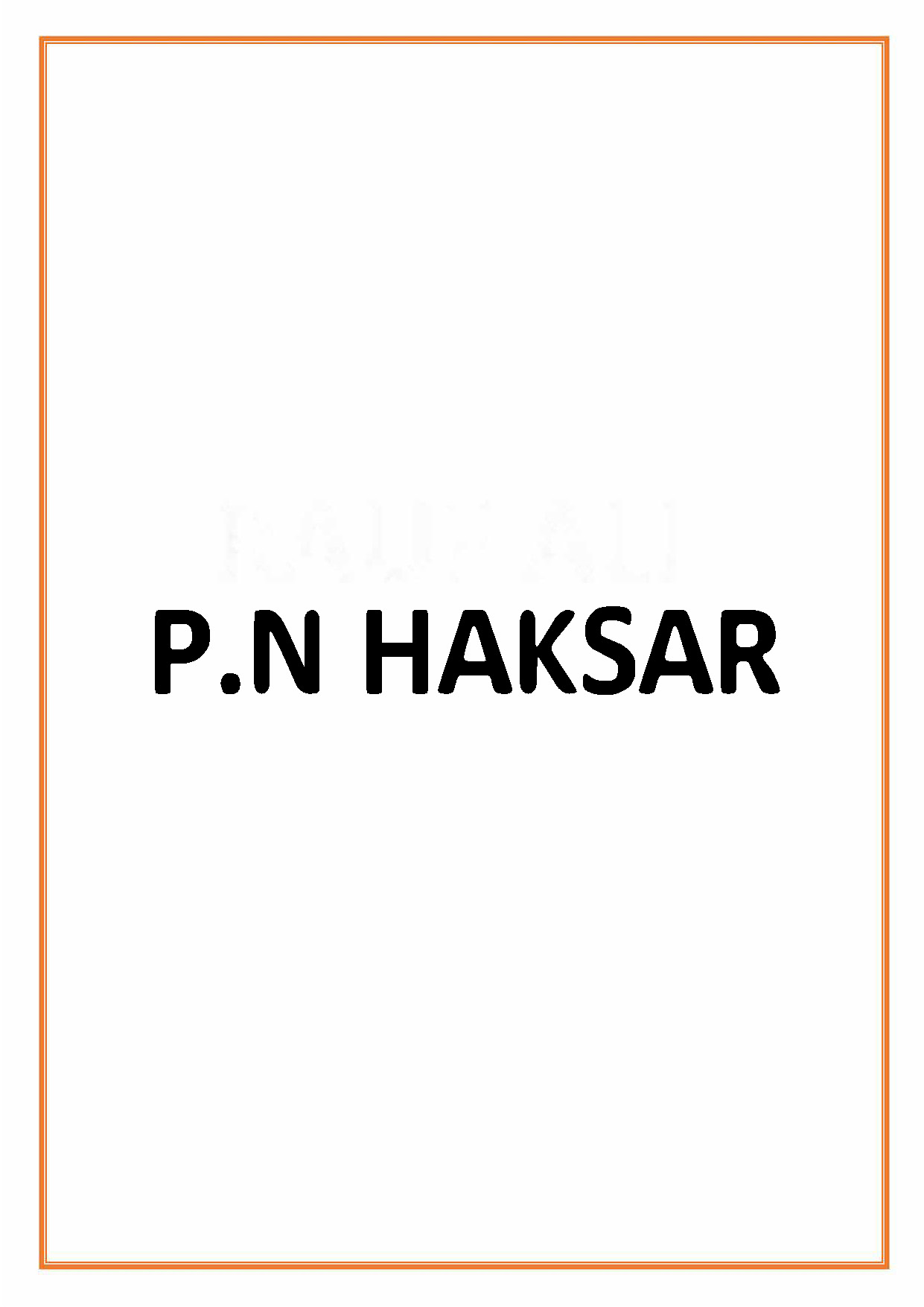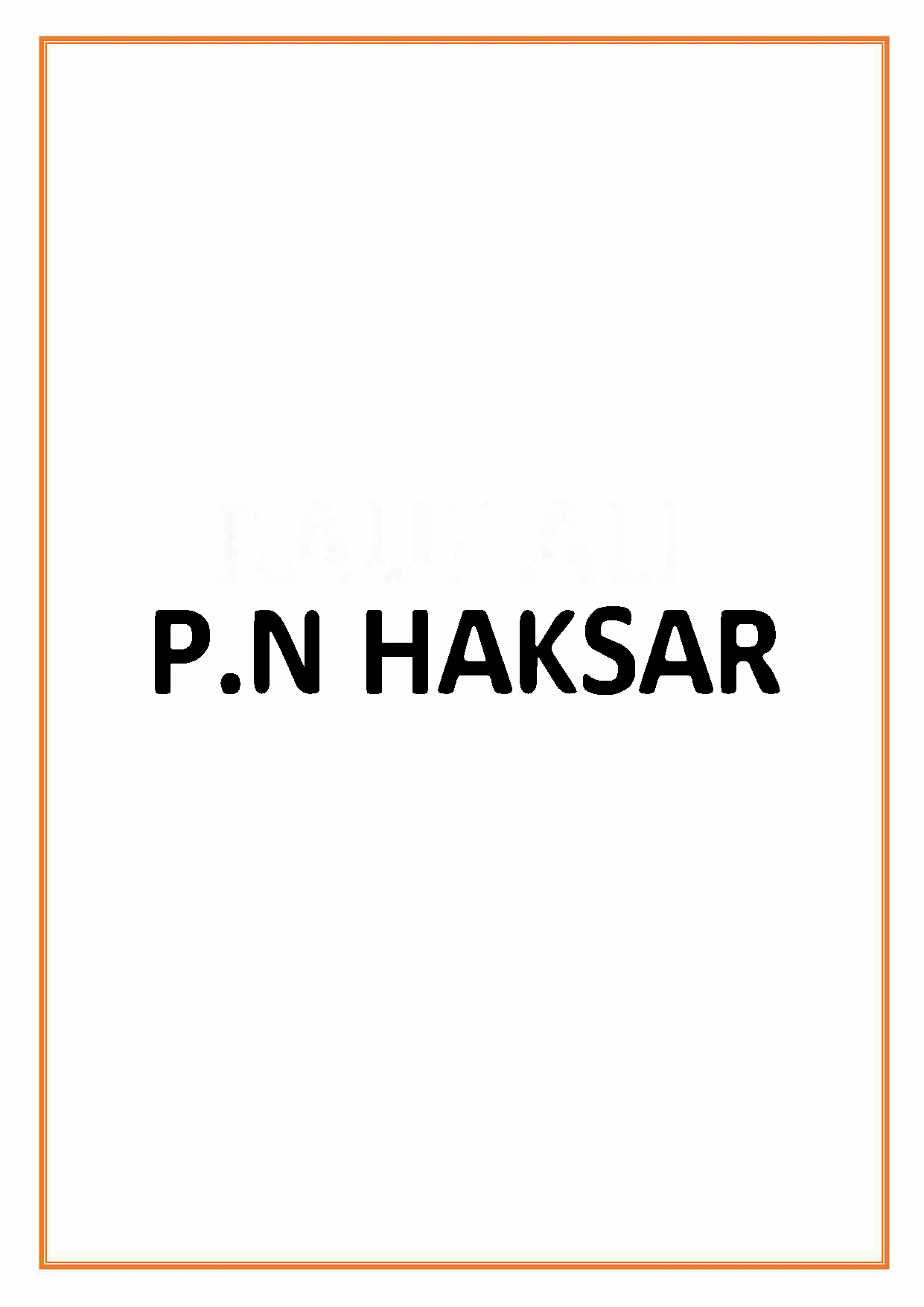A leading bureaucrat, diplomat and public figure, Parmeshwar Narain Haksar was born on 4 September 1913 in Gujranwala (now in Pakistan). P.N. Haksar joined the Government Intermediate College at Allahabad in July 1929 and enrolled for BSc. degree at Allahabad University in 1931. Haksar went to England in 1936 and studied at the London School of Economics and University College London (UCL). In December 1937, he was elected as a Fellow of the Royal Anthropological Institute. He obtained a MSc. degree in Anthropology in 1939. He was an active member of India League, which greatly shaped his socialist political outlook. He was called to the Bar from Lincoln’s Inn in the early 1940s.
Haksar returned to India and practiced as a lawyer at Allahabad High Court, 1943-1947. He joined the Indian Foreign Service in 1947. He was Officer on Special Duty, Ministry of External Affairs, Government of India, 1947; Adviser and later alternative Chairman, Neutral Nations Repatriation Commission, Korea, 1953-54; Director, External Publicity Division, 1955-58, and Joint Secretary, MEA, 1959-60; High Commissioner to Nigeria, 1960; Ambassador to Dahomey and Togo, 1962—64, and Austria, 1964-65; and Deputy High Commissioner in U.K., 1965-67.
Haksar served as Secretary to Prime Minister Indira Gandhi, 1967-1971, and as Principal Secretary, 1971-1973. He was Deputy Chairman of the Planning Commission from 1975 to 1977. He played a decisive role in nationalization of banks in 1969 and abolition of Privy Purses and princely privileges in 1970. He also played pivotal roles in signing of the Indo-Soviet Treaty, creation of Bangladesh, Shimla and New Delhi Agreements with Pakistan, emergence of India as an agricultural, space and nuclear power, and the integration of Sikkim within India. In 1973, P.N. Haksar was honoured with Padma Vibhushan, which he declined.
Haksar was a member of the UN International Civil Service Commission, 1975-80. He received the Soviet Land Nehru Award, 1987, the Indian Science Congress Award, 1989, and the Indira Gandhi Award, 1989.
He was the Chancellor of Jawaharlal Nehru University, New Delhi in the 1990s. He was Chairman of the Governing Body of Centre for Research in Rural and Industrial Development (CRRID) and Editor-in-Chief of the international quarterly Man & Development for many years. He was also associated with the Delhi Science Forum (DSF). He lost his eyesight during the last years of his life and passed away on 25 November 1998.
P.N. Haksar authored Reflections on our Times (1982), India’s Foreign Policy and its Problems (1989), and One More Life (1990).
About the collection: The papers of P.N. Haksar largely span across the period between 1967 to 1998. The papers throw light on the period during which P.N. Haksar was the Principal Secretary to Indira Gandhi. They are of immense value for research in contemporary politics in South Asia, U.S.A. and U.S.S.R. They give a glimpse into the aftermath of Cold War, and political events in and around India, for instance, the Bangladesh liberation war (1971), declaration of Emergency by Indira Gandhi (1975), proceedings of the Shah Commission, Kashmir question and international relations. The collection contains articles and speeches by P.N. Haksar on Jawaharlal Nehru and themes such as rural development, society, culture and planning; and correspondence with his contemporaries such as Indira Gandhi, S.A. Dange, T.N. Kaul, C. Rajagopalachari, K.R. Narayanan, B.G. Verghese, D.N. Chatterjee and M.C. Setalvad. The collection also contains handwritten letters exchanged between P.N. Haksar and his wife Urmila Haksar. (Catalogue available)
Donor: Nandita Haksar
Acquisition: 2022



